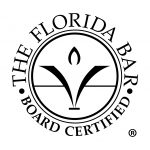Benefits of a Will
- A Will allows you to specify who receives your estate
- Within your Will you can create provisions for minor children, or disabled adults, or for beneficiaries that you want to benefit but not receive anything outright (spendthrift or substance abuse)
- With a Will you can name specific distributions to certain persons or charities of your choice, while leaving the main portion of your estate to your major beneficiaries
- With a Will, you can determine who will be “in charge,” who will administer your estate
- When you write a Will, you then are no longer subject to “intestacy,” which is a “default Will” for persons having no Will.
- A Will is easy to create and maintain
- Wills can be amended at any time, so long as you are competent
What a Will does not do ……
- A Will does not avoid probate . . . . If it is important to you to avoid probate, visit the page on Trust or Will? or the page on How Trusts work
- A Will only governs property in your name alone; a Will does not control the disposition of assets held in beneficiary form, or in joint name
- A Simple Will does not have special Estate Tax savings, although specific estate tax savings provisions can be added to either a Trust or a Will
What is a Pour-Over Will?
When a Trust is employed in an estate plan, the Trust acts in a way as a “Will Substitute.” Distribution provisions are placed in the Trust rather than in the Will, as occurs with a Simple Will. You might assume that with the Trust as the major distribution vehicle that a Will is unnecessary. Actually, when a Trust is employed a special kind of Will is paired with the Trust. This type of Will is called a “Pour-Over” Will. A Trust only governs assets that are funded into the Trust. A Pour-Over Will sends assets that did not get funded in the trust during lifetime to the Trust.
Beneficiaries of your Will
Beneficiaries of a Will are your “objects of bounty.” For some clients these are your children or grandchildren. For other clients the beneficiaries are a friend, more remote relatives, a charity, or a combination of the foregoing.
Executor, Executrix, Personal Representative and Estate Administrator
The person who is “in charge” of your Will was traditionally called Executor (male) or Executrix (female). Traditionally, the person “in charge” of an estate distributed by intestacy was called an Administrator, not an executor/executrix. On top of that, there are variations of the above terms (just one example: “administrator ad litem”). Florida law refers to the person “in charge” of handling a Will or intestate estate as a “Personal Representative.” The point of this term is for Florida law to use this one unifying term, rather that a whole various bunch of terms for the same or similar job. This website often employs the older terminology, because that is what clients and the public often use.
Estate
An “Estate” is a sum or collection of assets, money or property. Often it refers to such a collection of assets in relation to a person who died. Technically in a legal sense the term is not restricted to a decedent: for example the collection of assets in bankruptcy is sometimes referred to as a “bankruptcy estate.” To top it off, there are additional terms such as “trust estate,” “probate estate,” and “taxable estate.”
Beneficiary Designation Assets
A Last Will and Testament will only control the disposition of assets that are in your name alone at your death. Any assets in joint name, or in beneficiary form, will not be controlled by your Will at your death.

